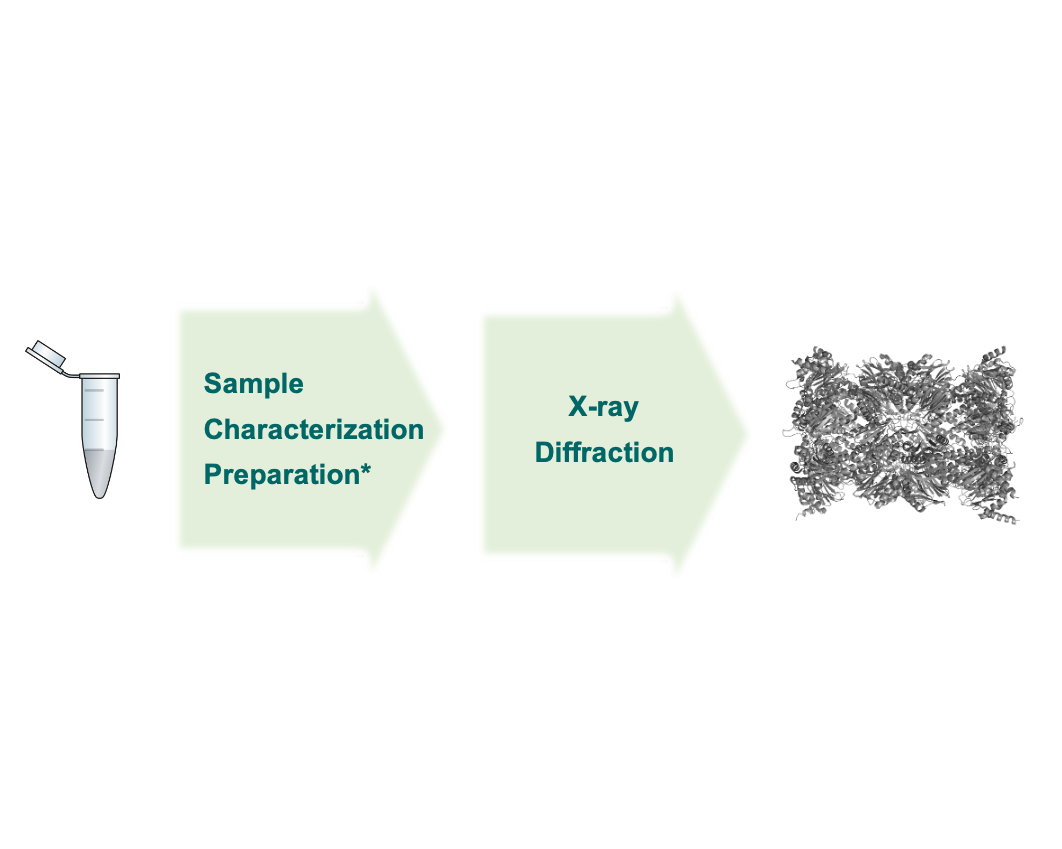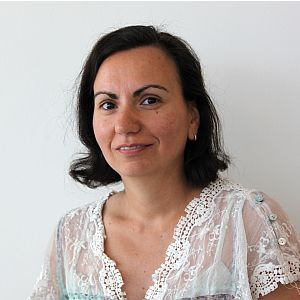View All X-Ray Techniques at Instruct
View All Crystallisation at Instruct
The 'From Sample to X-ray Diffraction' platform at EMBL Hamburg offers services for obtaining crystal structures from molecules of interest. Services include: sample characterization by various biophyscial methods, sample optimization, high-throughput crystallization, robotic crystal harvesting, diffraction data collection on synchrotron beamlines, data processing, and support in structure solution and refinement.
EMBL Hamburg operates three beamlines at the PETRA III synchrotron ring, two for macromolecular X-ray crystallography and one for small angle X-ray scattering on biological macromolecules. Academic access to the beamlines is available to all research groups, and is prioritised on scientific grounds only. All proposals for beamline access are evaluated by the Project Evaluation Committee.
EMBL beamlines also offer possibilities for mail-in and remote access. Users are encouraged to contact the beamline responsibles for further details.
The Sample Preparation and Characterisation (SPC) facility supports users on the beamline and in addition offers expertise to check and improve the samples that are submitted to the crystallisation facility and the SAXS beamline.
Diffraction data collection and processing. https://www.embl-hamburg.de/services/mx/P13
Diffraction data collection and processing. https://www.embl-hamburg.de/services/mx/P14
The SPC crystallisation platform offers a wide range of crystallisation screening conditions and flexible methods have been developed to adapt each step to individual project requirements. The services are available to the general user community. Online observation of the plates is possible via the Crystallisation Information Management System (CRIMS), which makes results available to users in real-time, along with all experimental parameters. All crystallisation projects can be monitored by the user using CRIMS from any computer, inside or outside the premises of the institute. More information about our SPC crystallisation platform can be found here. https://htx.embl-hamburg.de/ http://www.embl-hamburg.de/services/spc/Services-and-resources/protein-crystallization/index.html
We offer the automated CrystalDirect harvester robot, able to harvest protein crystals from 96-well Crystal Direct plates by means of laser photoablation.
Differential scanning fluorescence (nDSF), Dynamic light scattering (DLS), Thermal shift assay (TF and nDSF), Intact mass spectrometry (MS), mass photometry (MP)
Prior to start a new crystallisation project, you first need to purify the protein in relatively large quantities (few milligrams). High purity and homogeneity of the sample are crucial for the crystallisation to be successful. Dynamic light scattering (DLS) and Mass Photometry (MP) may be used to characterise the polydispersity of the sample (the presence of different oligomeric forms or even aggregates of the protein in solution) after concentrating the sample, using ThermoFluor assays or nano Differential Scanning Fluorescence (nDSF) for characterising the stability of the protein in different buffers and in the presence of different ligands as well as having an estimated of the melting temperature of the protein. We recommend also characterising the protein by Mass spectroscopy in order to have an intact identification of the sample by molecular weight as purity. If you need help or advice about sample characterisation and quality control, please contact the SPC facility.
(a) Macromolecular Crystallography
The EMBL Beamlines P12, P13 and P14 on the PETRA III Synchrothron DESY, Hamburg provide optimum conditions for X-ray diffraction data collection:
We offer a pipeline for structure determination with various entry and exit points.
> Beamtime only
For experienced crystallographers who wish to carry out their experiments themselves. Of course, an experienced member of our team will be there to provide you with the necessary technical support during the experiment.
>Remote Access
For researchers who need additional flexibility, we provide remote access services allowing data collection from home. All you have to do is ship your samples to us and you will be assigned a member of our team that will handle your samples with care and assist you when needed during data collection. Experiments are carried out entirely by you via a network connection.
>Mail-in Data Collection
Using Mail-in data collection service allows you to ship your samples to us and our experienced team members will do the rest. Depending on your requirements, you will receive the collected data from us in raw and / or processed format.
>Crystal Direct Harvester
Crystal Direct Harvester is in operation at EMBL Hamburg. For automated crystal harvesting in CD-plates, please contact mx@embl-hamburg.de.
(b) High-throughput protein crystallization
SPC at EMBL Hamburg has established a fully automated platform for the high-throughput crystallization of biological macromolecules, starting from your sample on the tube until having your sample dispensed and being set up on different plates and screens according to your samples’s needs.
The SPC crystallization core facility include the following services:
High throughput soluble protein crystallization
High throughput membrane protein crystallization
Automated imaging and results available remotely
Optional sample characterization and quality control on in-coming samples
The identification of crystallisation conditions for biological molecules largely relies on a trial-and-error process in which a number of parameters are explored in large screening experiments. A significant effort is dedicated to sample characterization and quality-control experiments in order to identify at an early stage and prioritize those samples which would be more likely to crystallize. The SPC facility can perform MALDI-TOF analysis, thermal denaturation assay, nanoDSF or DLS and MP on samples submitted to the SPC crystallization platform on request. These methods provide additional information to the users which can be used to optimize protein stability and determine optimal temperatures for crystallization experiments.



